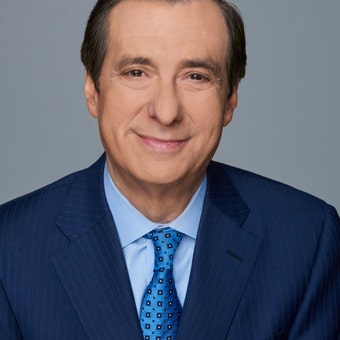Trump vows to assist GOP in taking back Congress in 2022
Rachel Campos-Duffy, Ben Domenech, Griff Jenkins and Carley Shimkus weigh in on 'The Big Sunday Show.'
Donald Trump went off on two female Republican lawmakers the other night, and since the press loves these food fights, that was automatically news.
But was it big news?
Obviously not as big as when Trump was in the White House.
Trump called a report that Lisa Murkowski was weighing whether to pass up another Senate run in Alaska "great news for the Republican Party!" Murkowski, of course, voted to convict him during impeachment.
He also declared that "so many people are looking to run against Crazy Liz Cheney"—this after the congresswoman, who appears quite sane, not only voted to impeach him but told Fox News she would not support him in 2024.
That rhetoric got some coverage, but also faded pretty quickly. After all, President Biden was dealing with the J&J vaccine mess and announcing a withdrawal from Afghanistan—which Trump could have credited as a continuation of his policy, but remained conspicuously silent.
Now comes the Atlantic with a piece titled "Whatever Happened to Donald Trump?"
The thesis is that Trump is being increasingly marginalized, in part because he’s barred from Twitter, Instagram and Facebook. He still gets mentioned a lot on cable news, though that’s declined as well, and his call-ins to sympathetic interviewers don’t make that many headlines.
BIDEN’S RISKY AFGHANISTAN PULLOUT: A TRUMPIAN BLOW AGAINST ENDLESS WARS?
Author David Graham’s take is that "the press has perhaps finally started to learn its lesson about covering his emptiest, most trolly outrage bait. Second, Trump’s ability to control the news depended in part on ever greater provocations. Once you’ve tried to overturn a presidential election, you don’t have a lot of room to escalate."
I’d add that Trump talks an awful lot about the supposedly rigged election, and even though many Republicans buy those unproven theories, it’s all in the rear-view mirror. While he takes on a couple of current issues, like the vaccine program, the focus is more on personal grievances. And that matters less to folks when you’re no longer, say, commanding the armed forces.
But the basic thrust of the Atlantic story is wrong. Trump wields more political power than any former president in history. Think about it: Teddy Roosevelt, who did run again? Herbert Hoover? Harry Truman? George H.W. Bush? Jimmy Carter? Barack Obama? Bill Clinton retained some influence because people thought he might be back in the White House with Hillary, but that’s about it.
The end of the article acknowledges this: "Trump remains in control of the Republican Party. A sizable minority of the population still backs him. He tops polls of GOP voters for 2024 presidential candidates. Leading Republicans like Kevin McCarthy and Steve Scalise make pilgrimages to Mar-a-Lago to shore up their standing. The campaign committee for Senate Republicans seems to have invented a prize just to give to Trump. Even figures such as Mitch McConnell and Nikki Haley, who harshly criticized Trump over the coup, have puerilely said they would back him if he were the 2024 nominee."
And much of the ring-kissing stems from the fact that he can probably help knock off a number of Republican incumbents in next year’s primaries.
Why else did Maggie Haberman just publish a New York Times piece on how other Republicans are dealing with the former guy?
George W. Bush just told "CBS Sunday Morning" that he wants to reengage and lobby his party on immigration reform. But how much clout would this ex-president, who couldn’t get it done in 2006, have with what is now clearly a Trumpian party? The contrast is striking.
SUBSCRIBE TO HOWIE'S MEDIA BUZZMETER PODCAST, A RIFF OF THE DAY'S HOTTEST STORIES
One other factor: Biden, as I’ve written, has made clear that he doesn’t plan to do interviews more than sparingly. His tweets are anodyne and his rhetoric is non-confrontational. That may be good for governance but it’s lousy for the news business, and Trump is partially filling the void.
Now Trump’s grip on the GOP could loosen over time. Maybe he doesn’t deliver for his candidates in 2022 and it becomes clear he’s not serious about a rematch at the age of 78. Then the media would undoubtedly lose interest. But at the moment, he’s being covered—and has to be covered—because he’s the most important Republican in America.










































